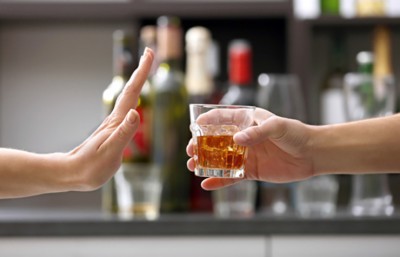
There is a Mitzvah to eat a large, festive meal on Purim. One fulfills this obligation with a single meal; there is no requirement to conduct more than one meal. There is also an obligation to drink wine on Purim. One should drink more wine than he is accustomed to drinking so that he grows tired and falls asleep. Women are included in the obligation of the Purim meal. They should not, however, drink large quantities of wine, and should instead drink slightly more than they are accustomed to. Chacham Ovadia Yosef rules that if a person becomes intoxicated on Purim, and as a result he acts in a reckless manner, causing damage to other people – such as if spills food on people’s clothes, or gets into some kind of accident in which people are hurt or property is damaged – he is liable to pay compensation. The Purim festivities are not an excuse for reckless behavior, and one is fully responsible for his actions on Purim just as he is at any other point throughout the year. It is very unfortunate that people distort the Mitzvah of the Purim celebration, feeling it gives them license to act in a reckless and unruly manner. People who drink on Purim and then get into their cars to drive violate American law, run the risk of imprisonment, and endanger their own lives and the lives of all motorists and pedestrians in the vicinity. Much to our shame, members of Hatzalah have reported that Purim is the organization’s busiest day of the year, as they must tend to people who have fainted or become dangerously ill as a result of drinking, or gotten into serious accidents because of drinking under the influence of alcoholic. Nowhere in Halachic literature does it say that the Purim festivities override Pikuach Nefesh (concern for the protection of human life). Quite to the contrary, Pikuach Nefesh overrides virtually all Mitzvot in the Torah. Although it is a Mitzvah to drink wine on Purim, there is no Mitzvah to act irresponsibly, and in fact, as mentioned above, acting irresponsibly on Purim is no less grievous a sin than it is on any other day of the year. It is truly shameful that people who are fairly lax when it comes to matters such as the recitation of Shema in its proper time, praying with a Minyan and the laws of Shabbat, are suddenly "meticulous" and uncompromising regarding the requirement to drink on Purim. Quite obviously, if somebody is not generally meticulous about Halachic observance but insists on getting completely drunk on Purim because of the Mitzvah, his sincerity is highly questionable, to say the least. Many people unfortunately abuse this Halacha of drinking, turning it into an excuse to act without restraint or discipline, which is hardly a Mitzvah, and is, in fact, a sin. To repeat what was mentioned earlier, the Mitzvah of drinking on Purim is fulfilled by drinking more than one is accustomed to so that he grows tired and falls asleep. This way, one reaches the point described by the Gemara as "where one cannot distinguish between ‘Cursed is Haman’ and ‘Blessed is Mordechai.’" Moreover, if there is even the slightest concern that drinking wine will lead one to dangerous or inappropriate behavior, it is Halachically preferable for him not to drink on Purim. This concern is, without question, a valid basis for an exemption from this requirement. Especially in today’s day and age, when addictions and alcohol abuse are, tragically, so rampant, even in our community, it is preferable to forego on drinking altogether on Purim if there is even a small risk of irresponsible drinking. Many people mistakenly consider drinking on Purim the primary Mitzvah of the holiday. This is absolutely incorrect. It is just one of numerous Mitzvot, such as Mishloach Manot, charity to the poor, reading and studying the Megilah, and so on, and if one wants to be stringent about the laws of Purim, he should be stringent in these areas, not about drinking. And, as mentioned, if there is any risk of drinking leading to dangerous or improper behavior, one is entirely exempt from the obligation to drink. To the contrary, it would be a Mitzvah not to drink, in order to avoid danger and impropriety. I have been privileged to observe many great Rabbis celebrating Purim, and their celebration can best be described by the famous verse, "Ibdu Et Hashem Be’simha Ve’gilu Bi’r’ada" – "Serve G-d with joy, and celebrate with trembling." The joy of Purim must be conducted with "Re’ada," with a degree of awe and reverence toward Hashem. As the Sages comment regarding this verse, "Where there is joy – there must be trembling." True, there are some who reach great spiritual heights and speak profound words of Torah as a result of intoxication on Purim. This is because of the concept of "Nichnas Yayin Yatza Sod" – "When wine goes in, the secret comes out." When people who are filled with Torah and fear of G-d become inebriated, the spiritual depths of their souls are revealed. But for the rest of us, whose inner "secrets" are far less sublime, it would be inappropriate to become intoxicated. The Purim festivities are not meant to commemorate the feast of Achashverosh, but rather serve to correct his feast, as we celebrate and enjoy ourselves in an aura of Kedusha. Purim is not a day of Hefker (lawlessness), but rather a day of profound service of Hashem through festive celebration. Let us ensure that this is how we observe it, and we do not distort it into something very different from what Purim is meant to be.
By Rabbi Eli Mansour
Purim – Drinking and Conducting Oneself Responsibly
Typography
- Smaller Small Medium Big Bigger
- Default Helvetica Segoe Georgia Times
- Reading Mode




